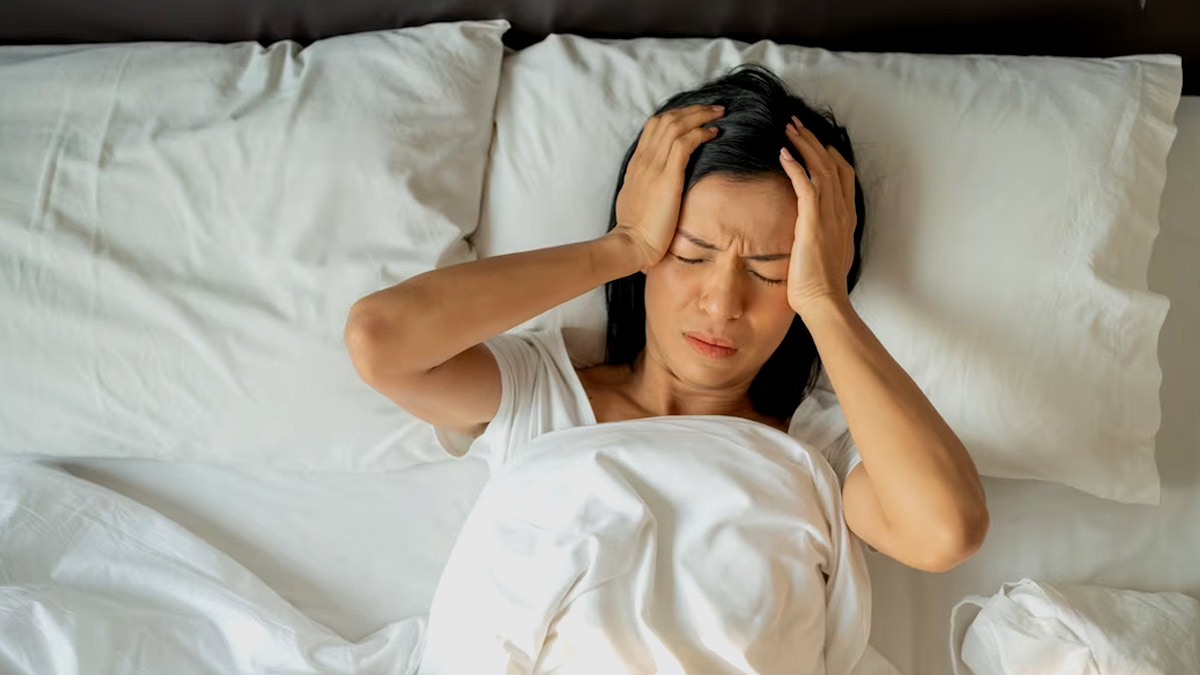
Sleep issues can be very discomforting and can disrupt healthy bodily functions. Insomnia is a sleep disorder characterised by difficulty falling asleep, staying asleep, or experiencing non-restorative sleep, leading to daytime fatigue, irritability, and impaired functioning. It can be a short-term condition or chronic, affecting an individual's overall well-being and quality of life. To understand how to tackle insomnia and manage the symptoms, we spoke to two experts.
Table of Content:-
Also Read: Bone Pain That Worsens At Night Could Be A Sign Of Bone Cancer: Other Symptoms
What Is Insomnia?

Insomnia refers to persistent issues with sleep, despite having the opportunity to sleep. According to the Journal Of Family Medicine and Primary Care, the prevalence of insomnia is between 10–30% of the population, some even as high as 50%–60%, and is common in older adults, females, and people with medical and mental ill health.
“The consequences of insomnia are significant, such as depression, impaired work performance, work- related/motor vehicle accidents, and overall poor quality of life. It is an easy-to-diagnose condition with many self-answerable questionnaires for aid, yet goes unrecognised in a significant number of patients coming to the outpatient department with other comorbid conditions,” the research paper adds.
Common Causes Of Insomnia
Dr VNB Raju, Consultant Interventional pulmonology and Sleep medicine, Apollo Clinic, Nizampet, lists the most common causes of insomnia, which include depression and/or anxiety disorders, neurological disorders, such as Alzheimer’s or Parkinson’s disease. “Chronic insomnia can result from thyroid dysfunction, arthritis, asthma, or other medical conditions in which symptoms become more troublesome at night, making it difficult to fall asleep or stay asleep,” he shared.
Certain drugs, including antidepressants and stimulants, and lifestyle factors, such as excessive caffeine or alcohol consumption and smoking can interfere with sleep patterns, according to Dr Pavan Yadav, Lead Consultant-Interventional Pulmonology and Lung Transplantation, Aster RV Hospital.
A study published in the Journal Dialogues in Clinical Neuroscience suggests that links between sleep and depression are strong.
"About three quarters of depressed patients have insomnia symptoms, and hypersomnia is present in about 40% of young depressed adults and 10% of older patients, with a preponderance in females," the research paper adds.
Also Read: Promoting Nutritious Diet Among Indian Youngsters: Strategies To Follow
Managing Insomnia

To manage insomnia and its various symptoms, here’s what you can focus on:
- Adopt good sleep habits, such as maintaining a consistent sleep schedule and creating a relaxing bedtime routine
- Choosing Cognitive Behavioral Therapy for Insomnia (CBT-I), which addresses the thought patterns and behaviours that contribute to sleep problems and offers effective coping strategies, says Dr Yadav
- Short-term use of sleep aids or sedatives as prescribed under medical supervision
- Engage in relaxation practices like yoga, meditation, or deep breathing
According to Dr Raju, you also need to concentrate on what you eat and drink, limit daytime naps, indulge in physical activities, and create a restful sleep environment.
In addition, avoid screens (phones, laptops, TVs) at least an hour before bedtime, as blue light can disrupt the production of sleep-inducing hormones, as per Dr Yadav.
Also watch this video
How we keep this article up to date:
We work with experts and keep a close eye on the latest in health and wellness. Whenever there is a new research or helpful information, we update our articles with accurate and useful advice.
Current Version